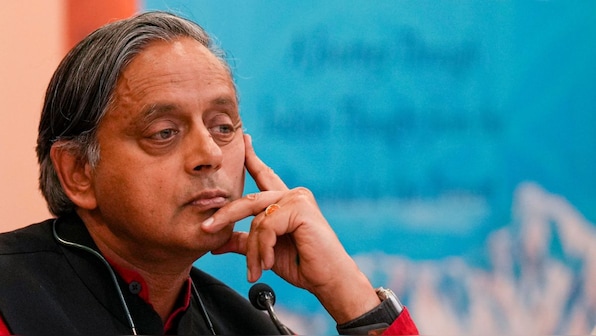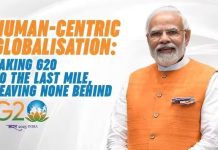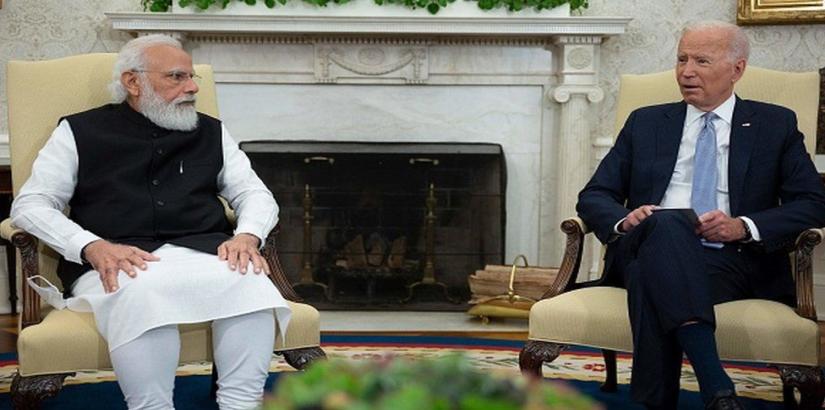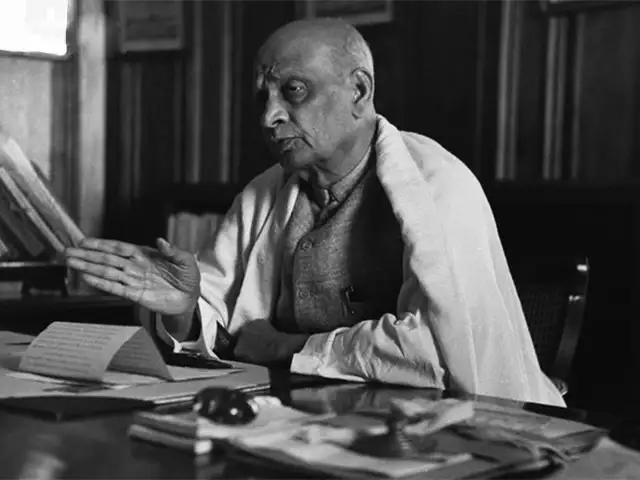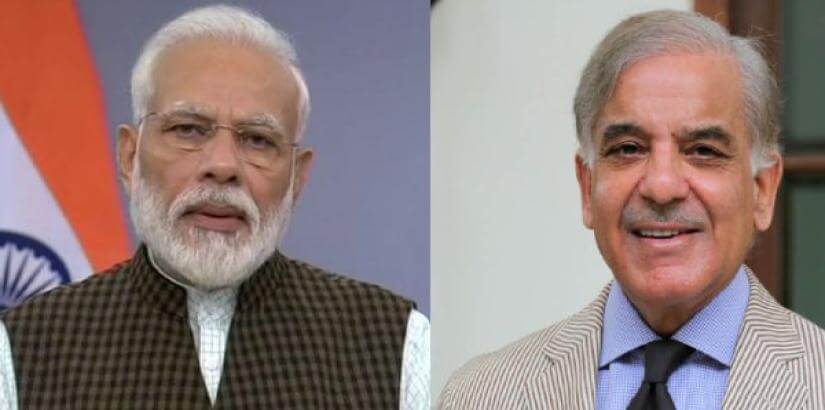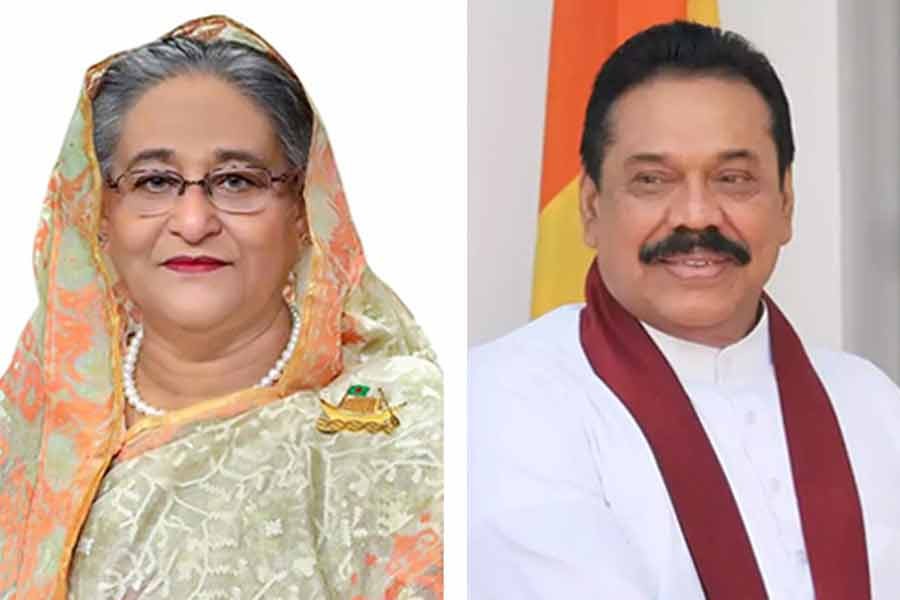Mayank Chhaya
Popular Indian parliamentarian Shashi Tharoor’s above the partisan fray stance in the aftermath of the April 22 Pahalgam terrorist killings and the subsequent near warlike India-Pakistan conflict has a political trajectory that could eventually land him outside his own Congress Party.
Even though Tharoor, a former UN diplomat, a junior minister in a previous Congress government, an author of 22 books and a versatile public speaker, continues to profess his commitment to Congress, the party does not seem to be in the mood to return the love. It is obvious that he is at a political crossroads as he leads a multiparty delegation of Indian lawmakers to Guyana, Panama, Colombia, Brazil and the United States as part of the Indian government’s outreach across the world.
He said before embarking on the five-nation tour that India needs to “speak up with clarity and conviction for our country, our response and to give the world the message that we will not be silenced by terrorism and we don’t want the world to look away either.”
Gandhi-Jaishankar spat
While the Congress Party generally and its most public face Rahul Gandhi particularly stood by Prime Minister Narendra Modi in the immediate aftermath of the Pahalgam attack and the military strikes that New Delhi carried out on Pakistan-based terrorist bases, the mood has soured dramatically in the past few days.
Gandhi posted on X saying that External Affairs Minister (EAM) S. Jaishankar had publicly admitted that New Delhi had informed Islamabad in advance about the first Indian military strikes against terrorist infrastructure in that country.
In his comments to the media on May 17, Jaishankar said, “At the start of the operation we had sent a message to Pakistan saying we are striking at terrorist infrastructure. We are not striking at the military. So the military has an option of standing out and not interfering in the process. They chose not to take that good advice.”
Gandhi latched on to those comments immediately and said on his official X handle, “Informing Pakistan at the start of our attack was a crime. EAM has publicly admitted that GOI did it. 1. Who authorized it? 2. How many aircraft did our air force lose as a result?”
Gandhi’s explosive allegations ignited a political firestorm with his critics within the Bharatiya Janata Party (BJP) and elsewhere saying that he was speaking “the language of Pakistan”.
Rather than backtracking or nuancing his response, Gandhi doubled down again posting on X on May 19, “EAM Jaishankar’s silence isn’t just telling — it’s damning. So I’ll ask again: How many Indian aircraft did we lose because Pakistan knew? This wasn’t a lapse. It was a crime. And the nation deserves the truth.”
Those comments contrast sharply with Tharoor’s nonpartisan comments, which he said, are prompted by the larger concerns about India’s national security. With such a gaping divide between Tharoor and Gandhi coupled with signs of mounting disaffection for the MP from Thiruvananthapuram, Kerala, it is anybody’s guess whether he would last in the Congress Party and for how long.
Tharoor has been a four-term MP since 2009 and is one of the most reliable performers for his party. And yet he finds himself increasingly out of step with his leadership over crucial national security and ideological issues. There are critics of Tharoor’s within and outside the party who say that his often-pleonastic erudition may dazzle a certain segment of the Indian middle class, but it barely hides the fact that he is frequently at odds with his party. That is where the rub lies.
Tharoor’s independent streak
Over the years, Tharoor appears to have created a constituency for himself that cuts across party politics and has a nationwide following, particularly among the English-speaking youth. However, whether that constituency is enough for him to survive politically without any ideological home and larger fan base in the north of the country is questionable. The notion that he might cross over to Modi’s Bharatiya Janata Party (BJP) merely because the prime minister appears favorably disposed towards him is stretching credulity. Essentially, Tharoor still remains a staunch liberal whose values broadly align with those of the Congress Party’s and run afoul of the BJP’s.
The fact his independent streak is not viewed favorably by the party leadership is certainly problematic for him. He has not quite outlived his welcome in Congress but both sides seem to be getting antsy. It is possible that both sides would choose to maintain the status quo since neither has much to gain by separating. Tharoor is reported to nurse ambitions to become chief minister of his home state of Kerala where state elections are due in about a year. That being the case, it does not make political sense for him to look for a new home.
His choice as the leader of one of the multiparty delegations deployed by the prime minister, despite him not having been chosen by the Congress, has further eroded his position in the party, especially with the leadership. There are those who consider this as close to the breaking point as it can be, especially with the ruling BJP warming up to him and Prime Minister Modi known to have a soft corner for him. There is also some talk of disciplinary action against him once he returns from his visits.
If Tharoor is indeed disciplined, the Congress Party would have confirmed the popular perceptions of its aversion to intra-party democracy. The extreme form of punishment, of course, would be his expulsion, something that the leadership is unlikely to risk given its electorally vulnerable position. With 99 parliamentary seats, the Congress Party cannot afford to lose any of its members no matter how some of them may step out of the line occasionally.
It is not altogether inconceivable that both the party leadership and Tharoor – arguably the most well known public face of the Congress after Sonia and Rahul Gandhi – will find enough accommodation notwithstanding that Gandhi is not given to indulging fellow party members who stray from the party line beyond a point.
(The writer is a Chicago-based journalist, author and commentator) South Asia Monitor

